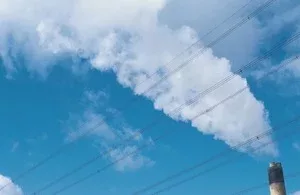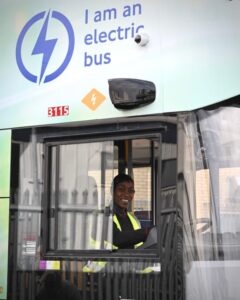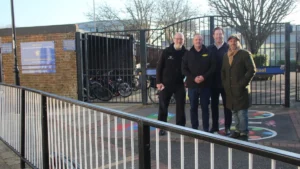Greater Manchester’s clean air leaders will formally write to government calling for an urgent review of global vehicle supply chain issues that threaten the city-region’s ability to comply with legal air quality limits.
The Greater Manchester Air Quality Administration Committee – made up of representatives of all 10 councils – met on Thursday 20 January to consider a new report into the global supply chain issues impacting the availability and cost of Clean Air Zone-compliant vehicles, particularly vans.
With the city-region’s 10 local authorities being under government directive to improve air quality, the committee will now formally write to George Eustice MP, Secretary of State for Environment, Food and Rural Affairs (DEFRA), requesting that he agrees to pause the opening of the second phase of Clean Air funds at the end of January.
The committee also agreed to request that the Secretary of State undertake an urgent and fundamental review that will identify how a revised policy can be agreed to manage global and national supply chain issues and support local businesses’ ability to comply with the Greater Manchester Clean Air Plan. This would seek to ensure that the right policy and funding arrangements can be put in place quickly that better reflect the additional costs and vehicle availability problems that businesses are facing.
Clean air leaders asked that government investigate if the current plan could create significant financial hardship for commercial vehicle users – already facing fuel and cost of living increases on top of the impact of the pandemic.
Councillor Andrew Western, Leader of Trafford Council and the city-region’s Clean Air Lead, said: “It’s not right that poor air quality – mostly brought about by polluting vehicles – contributes to 1,200 deaths every year in Greater Manchester alone.
“We want to see this number drop and I am keen to stress that we remain resolutely committed to cleaning up our air without losing a job, a business or putting anyone into hardship.
“We have considered this latest evidence, which is also reflected in the concerns we’ve heard from those business and individuals impacted and who are worried about their ability to upgrade. We need to have the right package of financial support to meet the targets set by government and are open to any solutions that can help us achieve that.
“We stand ready to work with the government on the right solution for our people, our businesses and, more importantly, the health of each and every one of us in Greater Manchester.”
In March 2020, the government issued a legal direction requiring the 10 Greater Manchester councils to address the clean air issue by introducing a Category C charging Clean Air Zone – affecting mainly commercial vehicles including HGVs, buses, coaches, minibuses, vans, taxis and private hire vehicles which do not meet set national standards for nitrogen dioxide emissions. Private cars, mopeds and motorbikes are not included in the scheme.
Greater Manchester secured £120m in government funding towards upgrading non-compliant commercial vehicles but government did not agree a request for a £10m hardship fund which would have helped those who need support most.
The Greater Manchester Air Quality Administration Committee meeting noted that the first phase of the Clean Air Zone due to launch in May 2022 – applying to buses, coaches, HGVs and taxi and private hire vehicles which are not licensed in Greater Manchester – will go ahead, including the ongoing provision of funding support for HGVs and buses to upgrade.
Members also requested that those vehicle owners who had already placed orders pending funding opening at the end of January should be able to contact Clean Air Greater Manchester for advice to ensure they are not detrimentally impacted by the decision to pause the opening of the funds, and that awards can be made where appropriate.
Greater Manchester has £7.6m of government funding to help eligible businesses, organisations and people who own HGVs to move to cleaner, compliant vehicles. HGV funding support opened in November 2021 for microbusinesses to upgrade, and it was agreed to extend this to small businesses (as soon as possible) and applications for bus replacement funding went live in September 2021 and bus retrofit in December 2020. Both remain open.
In addressing some of the supply chain issues also impacting HGVs, a temporary exemption is in place for vehicle owners who can demonstrate they’ve placed an order for a compliant upgraded vehicle but are waiting on its delivery.
The committee also heard that further data about supply chain issues relating to HGVs will be published next month nationally by the Society of Motor Manufacturers and Traders. This will continue to be closely monitored and a further report brought to next committee meeting about HGV supply chain issues.
The review will also consider whether some vehicles – such as motorhomes and horseboxes – that are not used for commercial reasons could be exempted from a Clean Air Zone and will consider amending the current vehicle ownership requirements for Greater Manchester-licensed hackney carriage and private hire vehicle owners when a vehicle has been upgraded due to licensing requirements to ensure they are not detrimentally impacted by the decision to pause the opening of the funds.
People are encouraged to go to the Clean Air Greater Manchester website and use the online checker to find out if their vehicle is in scope for daily charges and whether they might be eligible for an exemption, discount or funding support.
























